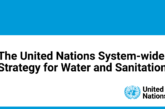Dr. Arvind Kumar*
Trans-boundary Cooperation
It is worth mentioning here that the Indus Water Treaty, signed between India and Pakistan in 1960, allocates all the waters of the eastern rivers – Sutlej, Beas and Ravi – amounting to nearly 33 million acre feet (MAF) annually to India for unrestricted use; nevertheless, the waters of the western rivers – Indus, Jhelum, and Chenab – amounting to 135 MAF are allocated to Pakistan.
It is a happy augury that a 10-member Indian Delegation is currently visiting Pakistan from March 1-3 to take part in the annual meeting of the Permanent Indus Commission, under the leadership of P.K. Saxena, Indian Commissioner for Indus Waters. In 2021, a delegation from Pakistan had visited India for the annual meeting. According to media reports, the Pakistan side is likely to raise objections on Indian hydroelectric projects viz., Pakal Dul, Lower Kalani, and Kiru in Chenab basin Jammu and Kashmir and a few small hydroelectric projects in Ladakh region.
In terms of the Indus Water Treaty (IWT), India has been granted the right to produce hydroelectricity through run-of-the-river projects on the western rivers subject to specific criteria for design and operation, and interestingly, IWT also gives the right to Pakistan to raise objections to designs of Indian hydroelectric projects on the western rivers. Nevertheless, India has asserted that the design of the project is fully in compliance with provisions of the IWT and this design is certified by Central Water Commission India as well as the Central Electricity Authority of India, apex bodies in the domain of water resources and power respectively. In the ongoing meeting, India is likely to make its position clear to Pakistan The Indian side has said that Pakistan’s apprehensions would be amicably addressed through continued bilateral discussions in the spirit of IWT.
It is worth mentioning here that the Indus Water Treaty, signed between India and Pakistan in 1960, allocates all the waters of the eastern rivers – Sutlej, Beas and Ravi – amounting to nearly 33 million acre feet (MAF) annually to India for unrestricted use; nevertheless, the waters of the western rivers – Indus, Jhelum, and Chenab – amounting to 135 MAF are allocated to Pakistan. However, India is allowed to construct run-of-the-river power plants on western rivers with limited storage, in accordance with the criteria laid down in the IWT.

In view of the vagaries of the climate change process wreaking havoc both in India and Pakistan, time seems ripe to renegotiate the IWT keeping in view the factors of climate change and environmental impact assessment that have not been in the original treaty. The floods of summer 2019 ravaged Pakistan causing an estimated $ 9.7 billion in damages to homes, roads, farms and other parts of the southwestern region of Pakistan. Similarly, flash floods, incidents of cloudbursts and landslides are a recurring phenomenon in the Union Territories of Jammu and Kashmir and Ladakh every year causing irreparable loss of human lives, property, and infrastructure. Since of these extreme weather events are water-induced; therefore, renegotiating the IWT keeping in view the factors of climate change and environmental factors, is seemingly the need of the hour and it will benefit both India and Pakistan.
Recently, a parliamentary standing committee in India has called upon the Government of India to renegotiate the provisions of the IWT with Pakistan because climate change and environmental impact assessment issues are missing the IWT as it exists today. Thus the Indian delegation can be expected to make a formal attempt to raise questions with Pakistan about the basic structure of IWT alluding to environmental and climate change issues.
Drawing attention to the fact that 1960 IWT did not take present day issues such as climate change, global warming and environmental impact issues, a recent report of the parliamentary standing committee submitted to Government of India emphasized: “In view of this, there is a need to renegotiate the treaty so as to establish some kind of institutional structure or legislative framework to address the impact of climate change on water availability in the Indus Basin and other challenges, which are not covered under the treaty.”
Undoubtedly, both India and Pakistan have been holding their annual meeting over the IWT; nonetheless, environmental and climate change issues have thus far been out of the purview of the discussions. Time is ripe for India and Pakistan to renegotiate the IWT in the larger interests of the populations of both countries who fall easy prey to the vagaries of climate change for no fault of theirs. One can hope that the ongoing IWT meeting in Islamabad will be fruitful enough to pave way for renegotiating the provisions of the IWT by keeping in view the climate change factor and environmental impact assessment issues.
*Editor, Focus Global Reporter



